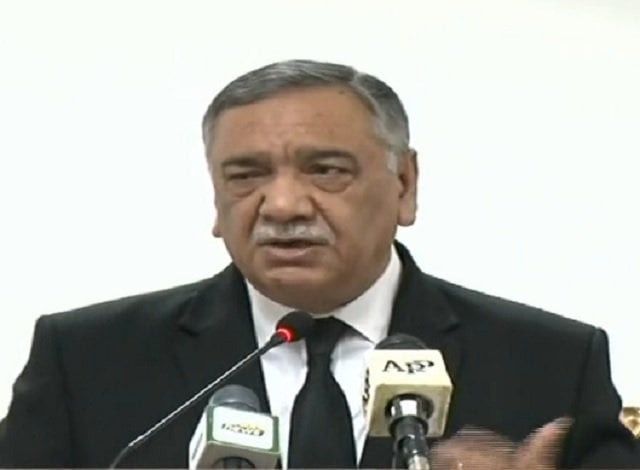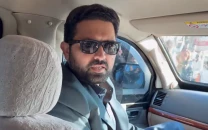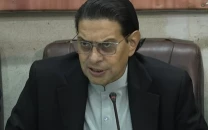CJP says time to rethink strategy to curb militancy, terrorism
Justice Khosa says the state must learn from others who have successfully defeated terrorists in their countries

Justice Khosa says the state must learn from others who have successfully defeated terrorists in their countries. SCREENGRAB
“We must learn from others who have defeated the terrorists. We need to rethink our strategies to deal with it in a more successful manner,” he said while speaking at the launch of a research study on “Impact of Militancy on Administration of justice in former FATA and PATA” held at the Federal Judicial Academy on Wednesday.
Enlightening the audience with the history of militancy and terrorism in different countries around the globe, CJP Khosa said, “Militancy is a form of terrorism and since time immemorial it has existed one in form or another in various parts of the world and civilians have been victims of terror acts. But the question is: how it was tackled in those troubled spots? What steps were taken by those countries and nations?”
He also readout extracts from a judgment issued in a recently concluded case by the Supreme Court in order to tackle militancy and terrorism in an effective manner. He also quoted a few inspiring lessons from a book titled “21 Lessons for the 21st Century”, written by a bestseller author, Yuval Noah Harari on the topic.
CJP Khosa: The judge who fast-tracked treason case
Commenting on importance and scope of the research culture, Pakistan’s top judge said, “Without research there is no progress, and with no progress there is no learning. It really augurs well that our judicial officers have undertaken research on a very important topic. This research will make them more analytical in their approach”.
“Research should always be original. It should always be conducted on the area and also in close contact with the people who are subject matter of the research in question. It should not be academic and bookish,” the chief justice remarked.
Sounding his optimism, he hoped that the research would enhance the competency and professionalism of judges who have conducted it and mechanism would be developed to push forward the suggestions and recommendations.
The chief justice also unveiled the publication that comprised seven chapters on the occasion.
Earlier, Hayat Ali Shah, the director general of the academy, welcomed the chief justice of Supreme Court and other distinguished guests and participants.
He dwelled at length on background of establishment of the research centre at the academy and its partnership with the International Committee of the Red Cross in the wake of its “Build, Support and Transfer (BST) Policy”.
He lauded the role of the ICRC for providing the requisite intellectual and fiscal support and assistance to undertake this first ever research study in the Academy.
Members of Research Team- I, II and III who are young judicial officers both male and female from all over Pakistan also gave their representations and which was reviewed by the research scholars on the occasion.
[/fbvideo]



















COMMENTS
Comments are moderated and generally will be posted if they are on-topic and not abusive.
For more information, please see our Comments FAQ